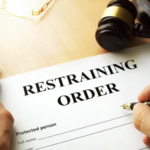Can Employers Discriminate on the Basis of your Criminal Record?

Your criminal record will hang around long after you have done the time, paid the fine or completed any punishment a court may hand down to you.
Even minor offences like being caught in possession of one ecstasy pill or a low range drink driving conviction can potentially have long-term consequences when it comes to your career if you receive a criminal record.
Which jobs require the disclosure of a criminal record?
A criminal conviction can be a major obstacle when applying for certain qualifications or positions, such as nursing, law, accountancy, policing and high level defence.
But that is not the case for all jobs.
Some employers may ask you to obtain a criminal record check or disclose any criminal convictions, but they cannot force you to do so.
Having said that, if you falsely complete an application or refuse to get a background check you may find that you are overlooked for the position or disciplined at a later time.
If your conviction is spent (after ten years, unless it is a certain type of offence) you don’t need to disclose it to anyone, even though an employer might ask if you have ever been convicted in court.
But spent convictions are subject to some exemptions.
For example, jobs as a judge, teacher, justice of the peace, or police officer will still require the disclosure of spent convictions.
A ‘Working With Children Check’ requires all convictions to be disclosed, even spent and juvenile ones.
It also includes matters which:
- Have not yet been finalised,
- Are proven but did not lead to a conviction, eg where the Magistrate or Judge gave you a ‘section 10 dismissal or conditional release order’ (guilty but no conviction),
- You were given the benefit of a ‘section 32’ mental health order (discharged upon entering a ‘treatment plan’),
- Have been withdrawn, or
- Have been dismissed by a finding of ‘not guilty’.
A person convicted of arson or attempted arson must also disclose this if applying for a position fighting fires or in fire prevention, regardless of whether the conviction is spent or not.
The law also says that security licences must not be issued to those who have a conviction for certain offences.
What can I do if I have been discriminated against based on my criminal record?
Research shows that employers generally prefer not to hire someone with a criminal record and that this can make it difficult to find work.
Unfortunately, employers may view people with criminal records as more likely to be dishonest or unreliable, or in some cases aggressive, even if the offence was minor and occurred many years ago.
If you feel like employers are unfairly discriminating against you because of your criminal record, you are not alone.
Each year, the Australian Human Rights Commission receives many complaints from people who feel that they have also experienced discrimination by potential employers.
They have the authority to handle complaints and settle them through conciliation.
However, they do not have the authority to make the employer comply with any decisions.
Their Guidelines (which are not binding) recommend that employers should only ask their employees and potential employees about criminal offences which are relevant to the inherent requirements of the job.
But in NSW, there is no legislation which specifically prohibits employers from discriminating on the basis of criminal records.
In the Northern Territory and Tasmania, on the other hand, legislation does prohibit discrimination on the basis of an ‘irrelevant’ criminal record.
The Australian Human Rights Commission Guidelines advocate the view that a criminal record should not be an absolute prohibition on a person’s employment, but rather should be judged on a case-by-case basis depending on the offence(s) and the specific nature of the job.
Having a criminal record is not necessarily the end of your career prospects.
In fact, even the NSW Police Force contains dozens of officers who have been guilty of serious criminal offences.
Figures show that about one in 40 NSW police officers has a criminal record, and while many may are for drink driving and less serious offences, others have been convicted of serious fraud, dangerous driving causing death and assaults causing grievous bodily harm.
Needless to say, the best way to avoid suffering negative implications of a criminal record is to avoid getting one in the first place.
If you are facing charges, it may be possible to avoid a criminal conviction altogether, even with a guilty plea.
If you are concerned about the impact that a conviction might have on your future career, speak to a criminal lawyer about the best way you can approach your upcoming case.






